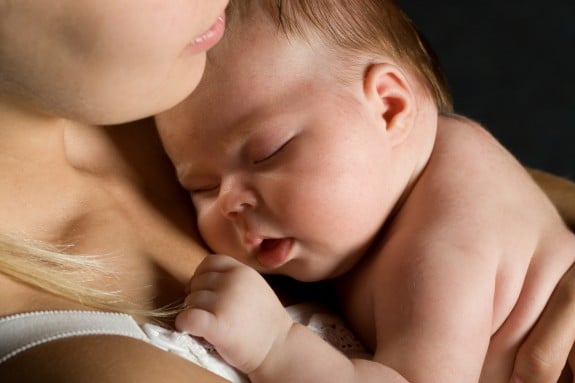There is no denying that becoming a new mom is tiring. A newborn’s schedule can be hard to get on track, and in that time sleep for everyone can be erratic. But how long will you lose sleep? A new QUT study has found that one in two new moms were still excessively sleepy four months after giving birth.
The CARRS-Q study, which was led by Dr Ashleigh Filtness, from QUT’s Centre for Accident Research & Road Safety Queensland, followed 33 healthy new mums who recorded their sleep patterns in 15 minute increments during weeks 6, 12 and 18 after giving birth.
“Sleep disruption strongly influences daytime function, with sleepiness recognized as a risk-factor for people performing critical and dangerous tasks,” she said.
The study, Dr. Fitness said, should be taken into consideration by law makers when making decisions about maternity leave. The maximum leave moms in the United States are entitled to is 18 weeks, but she believes they aren’t getting enough sleep to be productive that quickly after giving birth.
“With the birth of every baby the new mother must adjust to the demands of parenting and one aspect of that is to remain functional while experiencing potentially severe sleep disruption.
“To put this into context, the assessment tool used to determine new mums’ sleepiness is also used by GPs to determine clinically relevant levels of sleepiness. If any other otherwise healthy person presented to a doctor with this degree of sleepiness they would likely have been offered advice regarding implications for daytime impairment including the impact on sustaining attention and decision making.”
New mums still wake up, on average, twice a night to tend to their babies at 6, 12 and 18 weeks, and their total sleep time was about 7 hours and 20 minutes.
Disturbed sleep over a long period of time can cause illness, reduce your cognitive ability and your body’s ability to function healthily.
“Sleep disruption reduced over time and it appears this was driven by a reduction in the time it took for new mums to return to sleep, suggesting improved efficiency by mothers at settling their infant or the development of the infant’s circadian rhythm.
“These findings highlight the importance of sleep quality as opposed to sleep quantity, especially during the first 12 weeks.”
“Soon-to-be mums should be aware of the importance of their own sleep and consider how they are going to preserve their own sleep during the first few months of caring for a baby,” she said.







